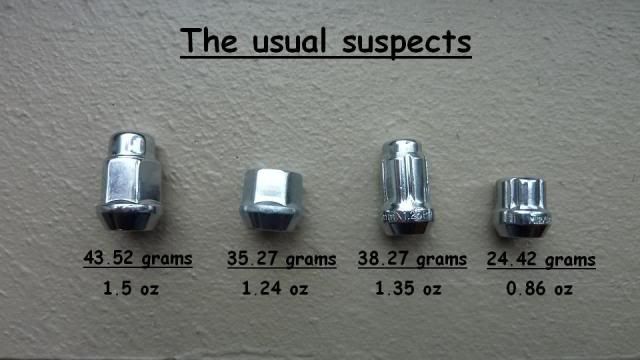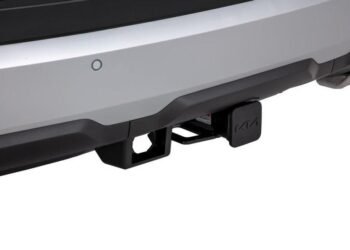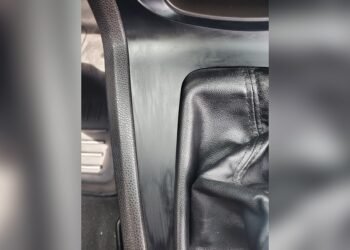Are aluminum lug nuts safe for your vehicle? If you’ve ever wondered whether these lightweight fasteners can hold up to the demands of the road, you’re not alone.
Choosing the right lug nuts is crucial because they keep your wheels securely attached, ensuring your safety and peace of mind every time you drive. You’ll discover how aluminum lug nuts compare to traditional steel ones, what makes them unique, and the key factors you need to consider before making a decision.
Stick with us, and by the end, you’ll have a clear understanding of whether aluminum lug nuts are the right choice for your wheels—and your safety.

Credit: www.mishimoto.eu
Aluminum Vs Steel Lug Nuts
Choosing between aluminum and steel lug nuts depends on several factors. Both types serve the same basic purpose of securing wheels. They differ in material properties that affect performance and safety. Understanding these differences helps make a better choice for your vehicle.
Strength And Durability
Steel lug nuts are stronger than aluminum ones. Steel can handle higher stress without breaking. Aluminum lug nuts are softer and may wear out faster. Steel resists deformation from high torque during installation. Aluminum lug nuts are prone to stripping if over-tightened. For heavy-duty use, steel is often preferred.
Weight Differences
Aluminum lug nuts weigh less than steel. This reduces the overall weight of the vehicle slightly. Lighter lug nuts can improve fuel efficiency and handling. Steel lug nuts add more weight but provide extra strength. The weight difference is more important in racing or performance cars. For everyday driving, weight is less critical.
Corrosion Resistance
Aluminum naturally resists rust and corrosion better than steel. Steel lug nuts often have coatings to protect against rust. Over time, steel coatings can wear off and expose metal. Aluminum lug nuts maintain appearance and function longer in wet conditions. For salty or humid environments, aluminum can be a better option.
Cost Comparison
Steel lug nuts are usually cheaper than aluminum ones. Steel is more common and easier to manufacture. Aluminum lug nuts cost more due to material and processing. The price difference may be small for regular vehicles. For budget-conscious buyers, steel offers good value and reliability.
Forging Process Benefits
The forging process offers key benefits for aluminum lug nuts. This method shapes metal using heat and pressure. It improves strength and durability. The process also reduces defects inside the metal. These benefits make forged aluminum lug nuts safer and more reliable for vehicles.
Eliminating Porosity
Porosity means tiny holes inside the metal. These holes weaken the lug nuts. Forging compresses the metal, closing these holes. This creates a solid, dense structure. As a result, forged aluminum lug nuts resist cracking. They hold strong under high stress and pressure.
Enhanced Mechanical Properties
Forging changes the metal’s internal grain structure. This realignment boosts toughness and fatigue resistance. The lug nuts become less likely to deform or break. They handle repeated tightening and loosening better. Enhanced mechanical properties improve overall safety on the road.
Heat And Pressure Effects
Heat softens the aluminum, making it easier to shape. Pressure forces the metal into a precise form. This combination refines the metal’s texture and strength. The process also reduces impurities and weak spots. Heat and pressure together produce a durable, high-quality lug nut.
Safety Concerns With Aluminum Lug Nuts
Aluminum lug nuts offer a lightweight option for vehicle wheels. Despite their appeal, safety concerns arise due to aluminum’s material properties. Understanding these issues helps ensure safe use and avoid problems on the road.
Risk Of Cracking
Aluminum is softer and less durable than steel. This makes aluminum lug nuts more prone to cracking under stress. Cracks can develop from repeated use or harsh impacts. A cracked lug nut may fail suddenly, risking wheel detachment. Regular inspection is crucial to detect cracks early and replace damaged nuts immediately.
Impact Of Overtightening
Overtightening aluminum lug nuts can cause serious damage. Excess torque can strip threads or deform the nut shape. Aluminum’s lower strength compared to steel means it cannot handle high torque well. Using a torque wrench to apply the correct tightness prevents damage and ensures the lug nuts hold the wheel securely.
Compatibility With Wheels
Aluminum lug nuts must match the wheel material and design. Using aluminum nuts on steel wheels can cause corrosion due to metal contact. Some wheels require specific lug nut shapes or seat types to fit correctly. Mismatched nuts may not hold the wheel safely or cause damage to the wheel’s finish. Always check wheel manufacturer recommendations before choosing aluminum lug nuts.
Torque Specifications For Aluminum Lug Nuts
Torque specifications are crucial for aluminum lug nuts to ensure safety and performance. Proper torque prevents damage to the lug nuts and wheels. It also keeps the wheels securely attached to the vehicle. Over-tightening can strip threads or crack aluminum. Under-tightening can cause the wheels to loosen over time. Follow exact torque specifications for best results.
Manufacturer Recommendations
Always check the lug nut torque from the manufacturer. Vehicle and wheel makers provide specific torque values. These numbers suit the material and design of the lug nuts. Ignoring these can cause safety risks or damage. Use the recommended torque settings printed in the owner’s manual or wheel guide.
Using A Torque Wrench
A torque wrench helps apply the right amount of force. It measures and controls tightening accurately. This tool prevents over-tightening or under-tightening aluminum lug nuts. Turn the wrench slowly and stop when it clicks or shows the set torque. Calibrate the wrench often for precise results.
Crisscross Tightening Pattern
Tighten lug nuts in a crisscross pattern for even pressure. This pattern helps the wheel seat properly on the hub. Start with one lug nut, then tighten the one opposite it next. Repeat until all lug nuts reach the correct torque. This method avoids warping or misalignment of the wheel.
Maintenance Tips
Proper maintenance keeps aluminum lug nuts safe and functional. Regular care prevents damage and loosening. It also extends the lifespan of lug nuts and wheels. Follow these simple steps to ensure safety and performance.
Re-torqueing After Installation
Always re-torque lug nuts after installation. Heat and vibration can loosen them. Use a torque wrench to tighten nuts to the manufacturer’s specs. Check torque again after driving 50 to 100 miles. This practice ensures nuts remain secure and safe.
Cleaning Lug Nuts And Studs
Keep lug nuts and studs clean from dirt and rust. Use a wire brush or cloth to remove debris. Avoid harsh chemicals that can damage aluminum. Clean parts ensure proper tightening and reduce corrosion risk. Regular cleaning helps maintain a strong connection.
Checking For Wear And Damage
Inspect lug nuts and studs regularly for signs of wear or damage. Look for cracks, stripped threads, or corrosion. Replace any damaged components immediately. Worn lug nuts can cause wheel instability and safety hazards. Routine checks prevent accidents and costly repairs.

Credit: www.toymods.org.au
When To Choose Aluminum Lug Nuts
Choosing aluminum lug nuts depends on specific needs and vehicle setup. They offer benefits in some cases but are not always the best choice. Understanding when to use them helps ensure safety and performance.
Racing And Performance Applications
Aluminum lug nuts are popular in racing for their lightweight nature. They reduce unsprung weight, improving acceleration and handling. Racers often prefer them for quick pit stops and easy wheel changes. Their strength is enough for high-performance use but requires regular checks.
Lightweight Wheel Compatibility
Some lightweight wheels need aluminum lug nuts to avoid damage. Steel nuts can be too hard and may scratch or crack these wheels. Aluminum lug nuts provide a softer contact surface, protecting expensive rims. Choose them if your wheels manufacturer recommends aluminum nuts.
Aesthetic Considerations
Aluminum lug nuts come in various colors and finishes. They add a custom look to wheels and enhance vehicle appearance. Car enthusiasts use them to match or contrast wheel designs. They offer style without much extra weight, perfect for show cars.
Alternatives To Aluminum Lug Nuts
Aluminum lug nuts offer lightweight benefits but may raise safety concerns for some drivers. Exploring other materials helps find safer, durable options. Each alternative has unique strengths fitting various vehicle needs and budgets.
Chrome-plated Steel
Chrome-plated steel lug nuts are common and highly durable. Steel’s strength handles heavy loads well without bending. The chrome plating adds rust resistance and a shiny finish. These lug nuts suit everyday driving and rough conditions. They balance strength and corrosion protection effectively.
Titanium Options
Titanium lug nuts combine light weight with strong durability. They resist corrosion better than steel or aluminum. Titanium is popular in racing due to its strength-to-weight ratio. Though more expensive, titanium lasts longer and withstands extreme stress. Perfect for those needing high performance and reliability.
Composite Materials
Composite lug nuts use reinforced plastics or carbon fiber blends. These materials reduce weight significantly. They resist corrosion and offer good strength for many uses. Composite nuts often come with metal inserts for added security. Ideal for drivers wanting lighter parts without sacrificing safety.

Credit: www.bonoss.com
Frequently Asked Questions
Are Aluminum Or Steel Lug Nuts Better?
Steel lug nuts offer superior strength and durability, ideal for heavy-duty use. Aluminum lug nuts are lighter but less durable and prone to damage. Choose steel for reliability and aluminum for weight savings in performance applications.
Do They Make Aluminum Lug Nuts?
Yes, aluminum lug nuts are available. They are lightweight and often used for racing or aftermarket wheels but require proper torque to avoid damage.
What Is The Best Material For Lug Nuts?
The best lug nut material is chrome-plated steel for durability and corrosion resistance. Titanium and forged aluminum suit lightweight or racing needs.
How Much Torque For Aluminum Lug Nuts?
Torque aluminum lug nuts between 80 to 100 ft-lbs. Always check your vehicle’s manual for exact specs. Use a calibrated torque wrench and tighten in a crisscross pattern. Avoid overtightening to prevent damage or cracking.
Are Aluminum Lug Nuts Safe For Everyday Driving?
Yes, forged aluminum lug nuts are safe for daily use if properly torqued and maintained.
Conclusion
Aluminum lug nuts can be safe if used correctly. They are lighter but less strong than steel. Always follow your vehicle’s torque specs carefully. Using a proper torque wrench helps avoid damage. Check the lug nuts regularly for tightness. Choose aluminum lug nuts made by trusted brands.
Avoid overtightening to prevent stripping or breaking. For daily driving, steel lug nuts remain the safest choice. Aluminum works well for specific needs like racing or weight reduction. Stay informed and maintain your wheels for safe driving.

















